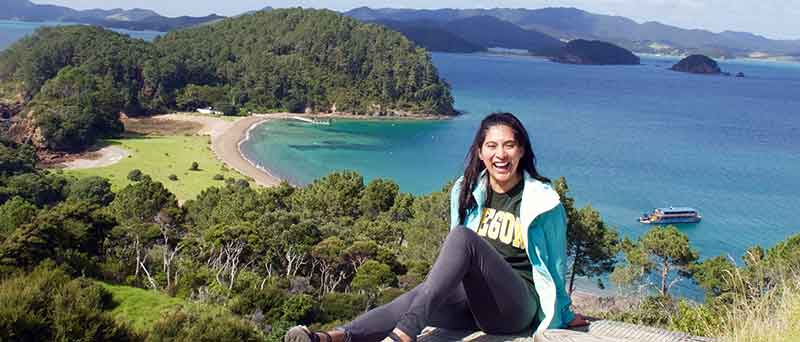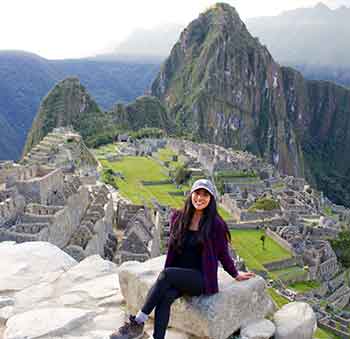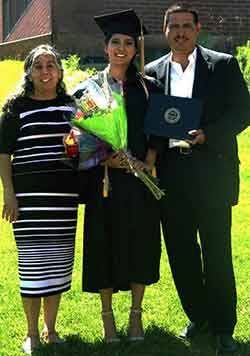
Bianca Sanchez
University of Colorado School of Medicine
 (August 2019) Bianca Sanchez started preparing for medical school as a sophomore in high school.
(August 2019) Bianca Sanchez started preparing for medical school as a sophomore in high school.
She signed up for Mini Med, a CU sponsored eight-week course in understanding the human body, and participated in Aurora LIGHTS, which started her on a research track that lasted for seven years.
At University of Colorado Denver, she majored in biochemistry with a minor in health humanities and prepared to apply to medical school.
But she held back.
“I didn’t apply right away because I still didn’t know exactly why I wanted to go into medicine,” she said. “I decided to take some time to understand my motivation.”
In 2017, during a woman’s health internship through the Pre-Health Program at University of Colorado Denver, Sanchez found her answer.
Shadowing a nurse practitioner in clinic, Sanchez learned that their next patient was a sexual abuse survivor who had cancelled several previous appointments. The patient had multiple procedures scheduled, but the nurse practitioner said those were not her priority. Instead, she would focus on building a relationship with the patient.
“I was taken aback when I stepped into the room and saw how she started to connect with the patient. She made her feel comfortable and let her know she was in control. I thought that this was exactly what a physician should be. You’re not just there to treat symptoms or make a diagnosis. Your role is to be there for someone in a critical part of their life.

“That was the moment I knew that medicine is for me.”
As the first person in her family to graduate from college and go into medicine, Sanchez had struggled to picture herself in the role of a physician.
“That program not only provided an internship, it gave me the ability to see my potential and see myself as a doctor and give me confidence that I can do it.”
The experience inspired her to serve her community through a discussion group called Health Dialogue at a woman’s shelter. She and three friends meet with shelter residents monthly to talk about exercise, nutrition and stress management, and self-care. The women also discuss their concerns about safety and security for themselves and their children.
“We don’t really go in and give them things to do but we discuss as a group and get to know them and try to understand their situation. One thing I noticed is that when they are talking about their circumstances they found themselves healing instead. They find a resource in each other, and it’s beautiful to see them connect that way. “
She plans to continue working with the group through medical school.
“I really think it’s important to have that reminder thorough medical school why I want to be a doctor and this is an opportunity that really provides that for me," she said. “I’m really excited to start medical school. As a doctor I know that I will always try to put the patient first and have a true impact on someone’s life and provide the care that people need in the way that they need it.“
Sanchez, 25, who was born in Los Angeles and moved to Colorado with her family at age 5, says that by going to medical school she’s fulfilling her own dreams and those of her parents, too.
“They are really proud of me. They always put my brother and me before themselves. I think their priority has always been the two of us, and it’s important to them that we have a future that was never offered to them when they were younger.”
Read About Our Students
Progress Asoluka — . Healthcare workers' neglect of his mother and younger sister spurred an interest in a health career.
Boston Gubler — .Befriending a stranger while on a mission in Chile prompted a change in career plans from business to medicine.
Bianca Sanchez — .A first-generation college graduate, Sanchez credits an internship with giving her confidence to pursue medicine.